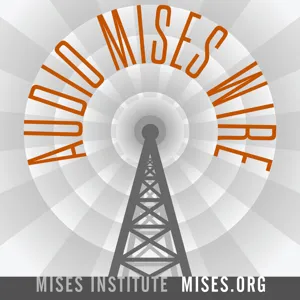Podcast Summary
Government overreach, censorship: The Biden administration's response to the pandemic and handling of controversial topics have raised concerns about government overreach and censorship, with critics arguing for a free and open exchange of ideas in a healthy democracy
The Biden administration's actions, particularly during the pandemic, have raised concerns about government overreach and censorship. Critics argue that the administration's response to the crisis has resulted in disastrous policies, from distance learning to reckless monetary policy, and a potential expansion of power. The administration's handling of the Hunter Biden story and allegations of censorship on social media platforms have added to these concerns. Despite accusations of using federal agencies and third-party organizations to monitor and censor content, the administration continues to push forward with its agenda. The debate over the administration's actions highlights the tension between the far left domestic agenda and hawkish foreign policy, and counter-narratives that challenge this narrative. The fear of losing traction on their narrative has led some to label opposing views as anti-democratic and xenophobic. The ongoing debate underscores the importance of a free and open exchange of ideas and information in a healthy democracy.
AI Regulation: The Biden administration is working on regulating AI to ensure trustworthiness and prevent discrimination through transparency and accountability principles, focusing on critical infrastructure sectors but potentially applicable to all sectors including chatbots and social media algorithms.
The Biden administration and the left are actively working to regulate the development and utilization of Artificial Intelligence (AI) to ensure trustworthiness and prevent discriminatory algorithms. This effort includes an executive order signed a few weeks ago, which delegates the power of implementing regulations to the National Institute of Standards and Technology and the Department of Homeland Security. The regulations focus on critical infrastructure sectors, and while the white paper published before the executive order is vague about the internet and online communications, its principles can be applied to any sector, including chatbots and social media algorithms. The ultimate goal is to tackle inequity and prevent discrimination in AI usage. Two key principles from the document - transparency and accountability - can be interchangeably applied to AI usage in any sector.
Automated System Equity: President Biden emphasizes the importance of protecting individuals from unsafe or ineffective automated systems, ensuring equitable outcomes, and preventing algorithmic discrimination through proactive equity assessments during system design.
According to President Biden, it's crucial to protect individuals from unsafe or ineffective automated systems and ensure equitable outcomes. These systems should proactively safeguard users from unforeseen harms and avoid biased data use. The definition of high-quality data, however, is subjective. The National Science Foundation is conducting research to foster the development of unbiased and effective automated systems. Moreover, Biden emphasizes the importance of preventing algorithmic discrimination through proactive equity assessments during system design. Automated systems can amplify existing societal biases and produce inequitable outcomes. For instance, statements like "I'm Christian" might be shared more frequently, while "I'm gay" might be blocked. This could potentially lead to a framework that silences counter-narratives to the progressive orthodoxy on social media. Even if the proposals only affect chatbots, inaction against a vague executive order and controlling regulatory regime isn't an option.
Technology and Young People's Political Beliefs: Technology, particularly chatbots and controlled algorithms on social media and search engines, is shaping young people's political beliefs, potentially leading to a skewed political landscape
The use of technology, specifically chatbots and controlled algorithms on social media and search engines, is playing a significant role in shaping young people's political beliefs. Non-leftist groups are concerned about the lack of youth in their ranks and the declining attention spans of potential recruits. Chatbots offer quick and easily digestible information, which can be biased or echo chamber-like in nature. When combined with controlled algorithms on social media and search engines, these tools can influence young people to lean towards progressive ideologies. This is a cause for concern as it could potentially lead to a skewed political landscape. It's essential for all political groups to be aware of this trend and find ways to engage with young people in authentic and meaningful ways, rather than relying solely on technology to spread their message.

